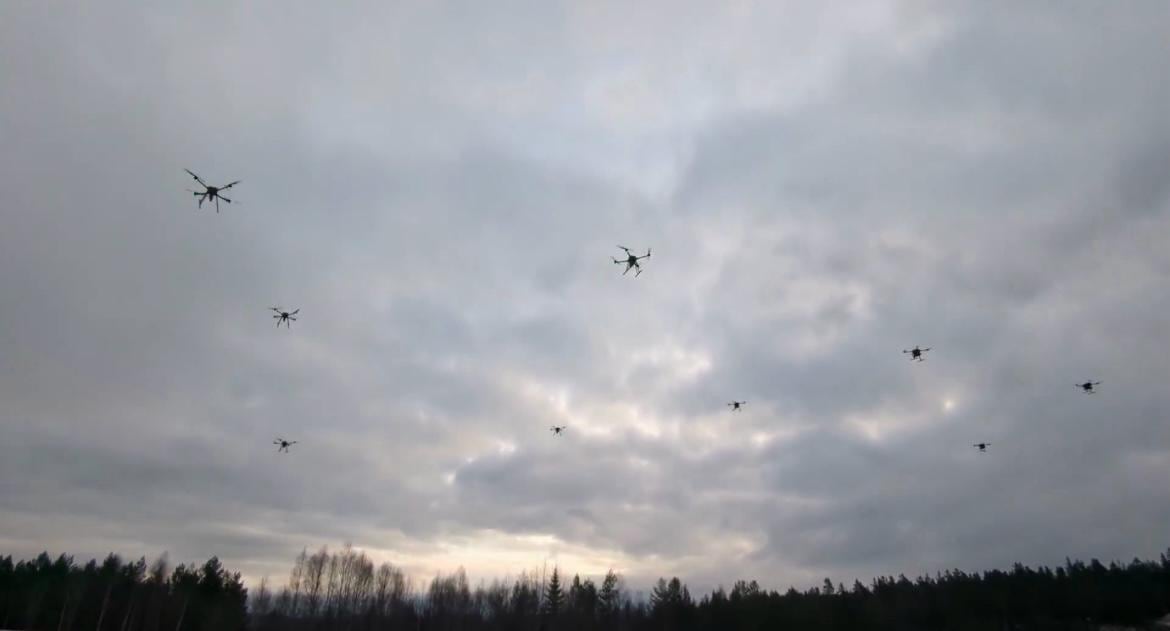Correction: A previous version of this story inaccurately described the latest ULAQ variant. The newest version is a surface vessel that performs anti-submarine warfare missions.
ANKARA, Turkey — Turkish shipyard Ares said it has designed and developed an unmanned anti-submarine warfare vessel, hoping to begin mass production this year.
Ares said the ULAQ DSH/ASW successfully passed laser-guided firing tests and will first enter service with Turkey’s military before the company seeks export contracts. The firm identified Oman, Qatar, and African and South American countries as potential customers.
In October, Ares and defense technologies company Meteksan Savunma launched a surface warfare version of the ULAQ; this was Turkey’s first armed unmanned surface vessel. The system has a 400-kilometer range and can travel up to 65 kph.
Ares also worked with Meteksan on the latest ULAQ variant. Both companies are privately owned.
Ares CEO Utku Alanc said in a television interview that 90 percent of the ULAQ DSH/ASW will be homemade, including its guns.
The companies said the surface warfare variant is equipped with day and night vision capabilities as well as encrypted communication infrastructure, which can be operated from mobile vehicles and headquarters or from sea platforms such as aircraft carriers or frigates. That infrastructure can be used for intelligence, surveillance, reconnaissance, surface warfare, asymmetric warfare, escort missions and strategic infrastructure protection.
The design for that initial ULAQ prototype was finalized in August 2020, Ares and Meteksan said, and structural construction was completed later that year. The first vessel was to enter Mediterranean waters in December following its outfitting, but delays saw the ULAQ launched into the sea in February.
The surface warfare variant’s missile systems are inclusive of four cells of Cirit and two of L-UMTAS, manufactured by Turkey’s state-controlled missile-maker Roketsan. The ULAQ will also be equipped with different variations of communication and intelligence technology, like jamming and electronic warfare systems, to cover diverse operational needs. The vessel is also expected be able to carry out joint operations with complementary drones.

Burak Akbas, Meteksan’s international sales and marketing director, told reporters that the surface warfare variant, in its current configuration, is ready for use and that the firms are in talks with 10 countries about selling the system.
“Yet, we don’t have a date for the vessel’s entry into the Navy’s inventory,” he added.
A project official said the anti-submarine version will feature similar configurations.
Meanwhile, in July, military electronics specialist Aselsan, the country’s largest defense firm, partnered with local shipyard Sefine to develop and produce two unmanned surface vessels, or USV.
The companies inaugurated the steel cutting of an anti-submarine warfare USV named NB57. They also held a ceremony for the first welding of an anti-surface warfare variant, RD09. Under the program, SEFT Ship Design, a Turkish vessel design house, will design the vessels.
Armelsan Defence, a Turkish diving detection sonars specialist based in Tuzla, Istanbul, will supply sonar for the NB57 USV. Aselsan will provide the 12.7mm STAMP gun systems. And Roketsan will outfit the surface warfare drone with indigenous missile systems.
Sefine began the USV work in 2019 in cooperation with Turkey’s defense procurement agency, the SSB. Aselsan joined the program in 2021. A news release from Aselsan said the new drones will serve in tasks such as autonomous reconnaissance and intelligence; surface warfare; anti-submarine warfare; and protection of bases, ports, critical facilities and high-value surface assets.
Burak Ege Bekdil was the Turkey correspondent for Defense News.








